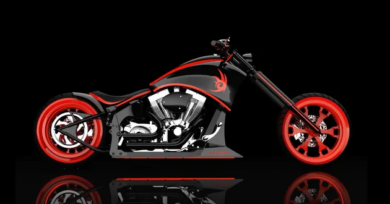Sept. 1, 2008 – Companies adding diesel to UTVs
By Steve Bauer
Managing Editor
Entry into the diesel UTV market has been a natural transition for many utility vehicle manufacturers, that see a large growth opportunity to cater to not only farmers and ranchers, but to outdoorsmen who are looking for vehicles that can handle heavy workloads along with taking hunters to and from their outdoor destinations.
“Most, if not all manufacturers have the technology needed to produce a diesel UTV based on the products they already build,” said Aaron Hanlon, product marketing manager for Cub Cadet. The company is joining the growing number of manufacturers to add a diesel UTV to their lineups, with the introduction of the Volunteer 4×4 D this month.
Hanlon says in a UTV world that generates large sales in high-speed recreational units, diesels have quietly been very successful of late, especially in a down market where consumers can justify the price of the vehicle because they know it will be used for work purposes. He says another key selling point to diesel consumers is the convenience the vehicles offer.
“Obviously buyers tend to be the farmers and large property land owners who have diesel gas tanks on their lots and tractors that normally take diesel, and even their cars are diesel,” he said. “Where as in the ATV market, you’re looking at a different type of consumer. Their passion for an ATV will be for riding trails and things of that nature. If you take it out and you’re going to a big trail, you have to stop at diesel-specific gas stations. It’s just generally more of a hassle if you’re not using it for work functions.”
Hanlon believes the market hasn’t fully developed for diesel ATVs, which is why there are limited numbers of models available in that segment.
“I think as we get into more biofuel or hybrid models that incorporate diesel, you’ll see that market for ATVs shift,” he said, “but we’re a few years away from that yet.”
Easy transition, easy profit
Along with technology to develop a diesel UTV, several companies already closely associated with the farming/ranching lifestyle have found that distribution has been a relatively easy problem to solve. For example, John Deere, one of the world’s largest manufacturers of agricultural equipment, initially aimed its UTV products toward farmers. Kubota did essentially the same when it began production of its RTV900 diesel, going to market through the same distributors that handled its compact tractor sales.
According to Kubota’s Utility Vehicle Product Manager James Burnside, this is actually what drove Kubota to introduce its RTV900.
“OEMs are entering this market because it’s growing and most companies like to follow the trends for growth,” he said. “Kubota entered it because of the growth of the market and the fact that the typical tractor dealer was the primary distribution outlet.”
George Zirnhelt, president and CEO at Power Systems, which supplies business information to the engine, power products and components industries, says parts and systems used in vehicles like commercial mowers and other equipment can be adapted to a UTV platform easily and cost-effectively. In contrast, attempting to create a UTV platform from an ATV model brings many more challenges.
“Every one of the companies that is currently manufacturing diesel UTVs has already developed a similar vehicle for another application,” he said. “They use all the same components — axles, transmissions, engines, suspensions, stamped metal. It’s all the same manufacturing technology.”
He adds one company that has made the transition from recreation to utility smoothly has been Kawasaki, which produces the Mule.
“The Mule gives riders the muscle that they need, but at the same time Kawasaki tried to incorporate as much of the ‘fun’ side of riding a UTV as possible.”
Even as more manufacturers have entered the diesel UTV segment, the market has continued to expand, with Hanlon explaining that there has not been a significant impact on any of the competitors to this point.
“We really believe in our product and we welcome the competition from other manufacturers,” he said. “With all this extra visibility and advertising, it’s really bringing in a lot of new customers.”
Biofuel diesel
One interesting development in the increased competition among diesel UTV manufacturers is the emergence of biofuel technology. Hanlon believes that once it becomes mainstream, it will draw even more consumers to the diesel market.
“It’s really catching on and I think as companies develop new diesel engines that biofuel will be a big part of that,” he said. “You can have an engine that’s just as powerful but runs much cleaner than traditional diesel, and that’s something that really is the best of both worlds.”
Hanlon says Cub Cadet has experimented not only with biofuel tecnology, but also in developing diesel hybrids, which would combine diesel and electric.
“You’re not going to see it next year, but its something we prototype and like to experiment with,” he said.
Growth opportunities abound
For 2009, Hanlon says Cub Cadet expects diesel to encompass 25-30 percent of the company’s total sales. He says that number should continue to grow as the technology in diesel UTVs keeps improving.
“I see steady growth in diesels,” he said. “In terms of doing work and having the ability to be able to use your vehicle for big jobs, whether it be for commercial or military purposes, these vehicles are going to play a major factor in the future. I really think outdoorsmen, especially hunters, are really getting into the diesels as well and will play a large part in diesel’s success.”
Kubota’s Burnside agrees, and says he does not see demand for diesel UTVs subsiding anytime soon.
“I think we’re going to see some really steady growth for the next five or more years,” he said. “I think there is some real strong growth left and I really believe that adaptability is one of the keys to continued success. Every time someone gets a bit creative with these vehicles, they open up a new market. So I think it has a long way to go before we start to see sales taper off.”




